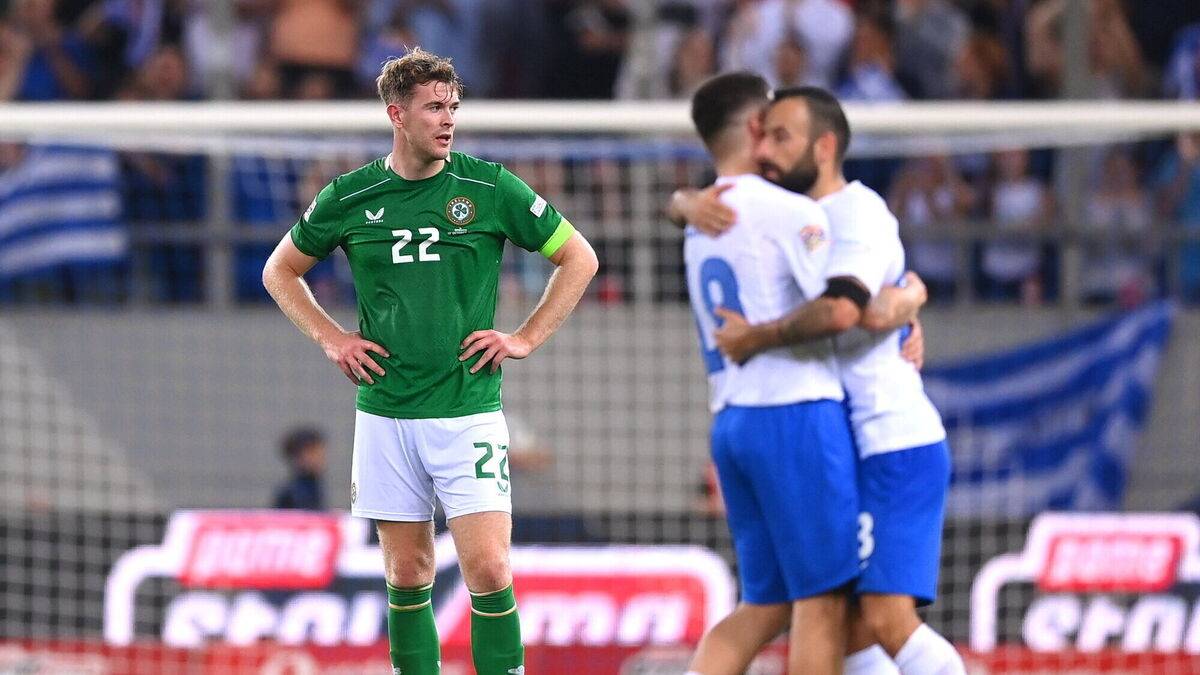In a game that showcased both promise and pain for the Republic of Ireland, their 2-0 defeat against Greece in the UEFA Nations League B left fans and critics alike lamenting not just the cracks in defense, but also the glaring issues further up the pitch. The result was another bitter pill for Heimir Halgrimsson's men, but the real story goes beyond just another loss.
A Fast-Paced Start, But Signs of Trouble
Unlike many international fixtures that take time to develop, this match between Greece and Ireland kicked off at a breakneck pace. Within five minutes, the terms of battle were set. Ireland, determined to press high and force the issue, nearly capitalized early through Evan Ferguson, whose claims for a penalty fell on deaf ears. But despite the early pressure, Ireland quickly found themselves on the back foot.
Greece, ranked 48th in the world, looked far more composed and skillful, frequently slicing through Ireland’s pressing game with ease. The warning signs were immediate. Greece piled on the pressure, forcing Ireland to defend deeply, as the hosts enjoyed 83% possession through the first quarter of the match and unleashed ten shots on goal. Only some last-ditch defending and outstanding goalkeeping from Caoimhin Kelleher kept Ireland level.
Defensive Frailties Exposed
Ireland's defensive shape wasn’t without merit—much of the first half saw them sitting in a 4-4-2 formation, attempting to hold their ground. However, Greece repeatedly found ways to exploit the spaces between Ireland's full-backs and central defenders. Crosses from both flanks tested Ireland's resolve, and only Kelleher's heroics kept them from conceding earlier. One standout moment saw Dimitris Gioannoulis nearly punish Chiedozie Ogbene's lapse in concentration, forcing another save.
Despite the defensive tenacity, Ireland’s inability to retain possession and relieve pressure was evident. Long balls upfield found no willing recipients, with forwards failing to make the ball stick. This constant loss of possession forced Ireland to remain under siege, straining both their defense and patience.
The Inevitable Breakthrough
After a first half dominated by Greece’s possession and pressure, it was almost inevitable that Ireland would crack. The opening goal came just minutes into the second half from a long-range strike, a familiar sight for Irish fans who have seen their team struggle to prevent such goals under the previous manager, Stephen Kenny. While Halgrimsson is not attempting to replicate Kenny’s possession-based football, this felt like déjà vu—another game where Ireland's defensive structure eventually crumbled.
Halgrimsson's Tactical Adjustments
To his credit, Halgrimsson attempted to inject fresh energy into the team. The introduction of Jack Taylor, an extra midfielder, briefly swung the momentum in Ireland’s favor. Taylor, making his senior debut, nearly marked the occasion with a goal as his header forced a save and another close effort followed from a set piece.
Though Ireland began to stir after conceding, it felt too little, too late. They found some success pushing into the Greek half but failed to convert any of their chances into meaningful results. Greece, already ahead and comfortable, allowed Ireland some time on the ball but remained dangerous throughout.
The Costly Mistake
The final nail in the coffin came courtesy of an unfortunate error from Kelleher, who had been excellent for most of the game. A soft second goal conceded due to his mistake sealed Ireland’s fate. While much attention will focus on this error, the real issue lies in the team’s struggle to threaten the opposition in attack.
Attack: The Best Form of Defense?
Halgrimsson had talked up an attacking Ireland side before the match, hoping to pose a threat up front, but this game exposed how far off they are from being that kind of team. The lack of cohesion and composure when in possession remains a major problem. Ireland may be trying to solidify defensively, but without the ability to hold onto the ball or create consistent chances, they are putting too much strain on their backline.
As the Republic of Ireland prepares for their next challenge, it’s clear that Halgrimsson has work to do not just in shoring up the defense, but in finding a way to make his team more effective in the final third. With time running out in the Nations League campaign, Ireland’s hopes for improvement rest on addressing both ends of the pitch—and fast.


